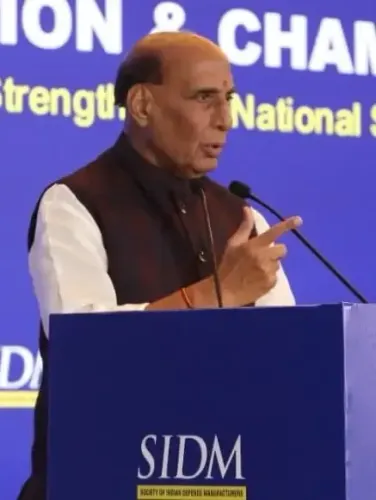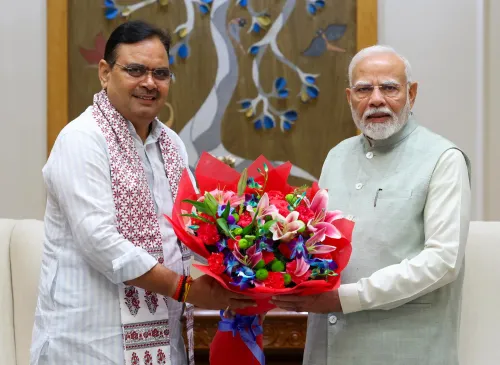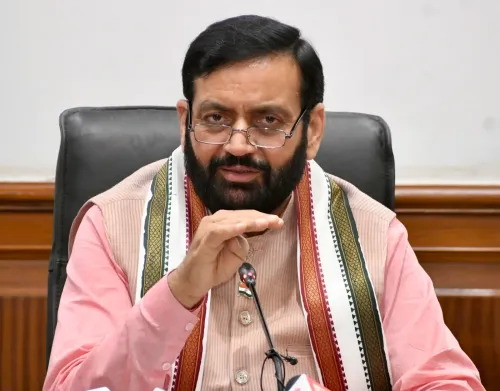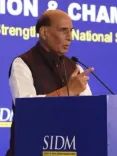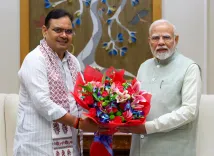Finance Minister Sitharaman Set for 8th Budget Presentation
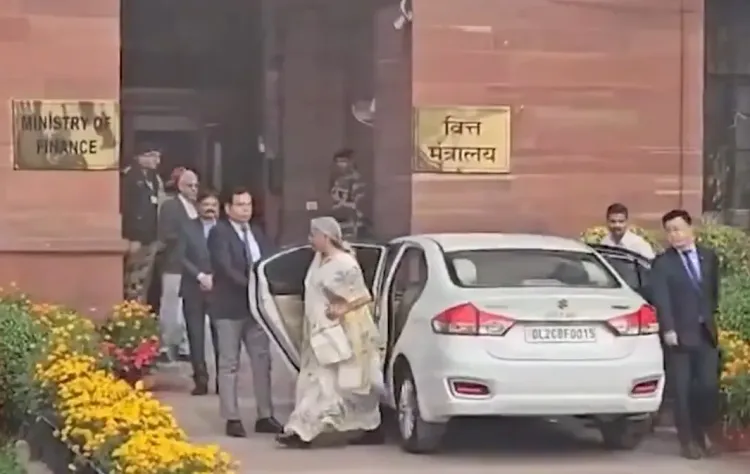
Synopsis
Key Takeaways
- Nirmala Sitharaman to present Union Budget for the eighth time.
- Focus on rural development and inclusive growth.
- Increased allocations for agriculture and welfare schemes.
- Possible Income Tax reductions for the middle-class.
- Adjustments in customs duties to support domestic manufacturing.
New Delhi, Feb 1 (NationPress) Union Finance Minister Nirmala Sitharaman is poised to deliver the Union Budget for the eighth consecutive time on Saturday, marking a significant milestone.
Having surpassed the record set by former Prime Minister and Finance Minister Morarji Desai last year, Sitharaman will unveil the Union Budget for 2025-26 in Parliament on Saturday.
The Budget speech will take place in the Lok Sabha starting at 11 a.m.
This year's Budget Session of Parliament, which commenced on Friday, will unfold in two phases: the first from January 31 to February 13, and the second from March 10 to April 4.
The upcoming Union Budget is anticipated to sustain the government's commitment to fostering economic growth while ensuring fairness.
Priority is expected to be given to enhancing the quality of life in rural regions to promote equitable and inclusive growth.
As highlighted in the Economic Survey 2024-25, a focus on financial inclusion is crucial, with rural families and small enterprises gaining improved access to credit via microfinance entities, self-help groups, and other intermediaries.
Key initiatives in infrastructure, rural housing, sanitation, clean fuel, social protection, and connectivity are outlined, alongside efforts to enhance rural livelihoods.
As a result, the agriculture and rural sectors are set to see increased funding in the Union Budget, along with welfare initiatives aimed at supporting the underprivileged.
The Finance Minister is also likely to persist with the government's strategy of amplifying investments in large-scale infrastructure projects to stimulate growth and generate additional employment opportunities in the economy for the fiscal year 2025-26.
Middle-class taxpayers may anticipate concessions, including a potential decrease in Income Tax rates and an increase in standard deductions. In the old tax framework, the basic income exemption limit stands at Rs 2.50 lakh, while the new regime sets it at Rs 3 lakh.
A reduced Income Tax burden would provide individuals with more disposable income, thereby boosting demand and further propelling growth.
The economic survey has also underscored the importance of rising private consumption in maintaining India's domestic economy's resilience amid global uncertainties.
Furthermore, adjustments to customs duties aimed at rectifying the inverted duty structure on certain items to support domestic manufacturing are also anticipated. These changes would involve increasing tariffs on finished goods while lowering duties on raw materials.


